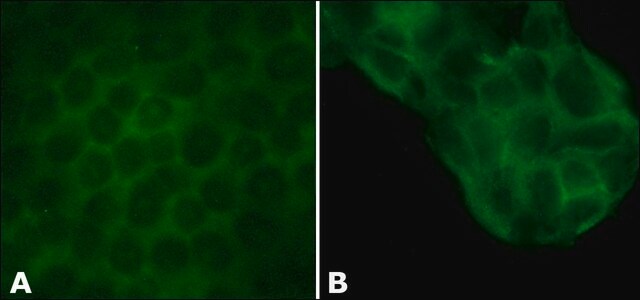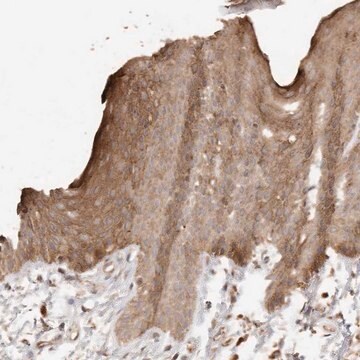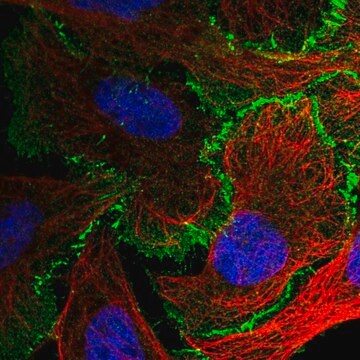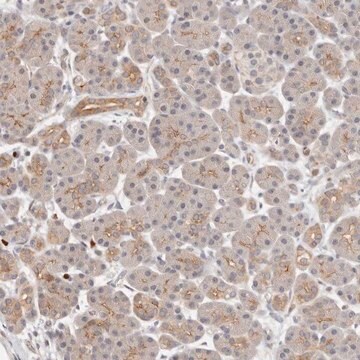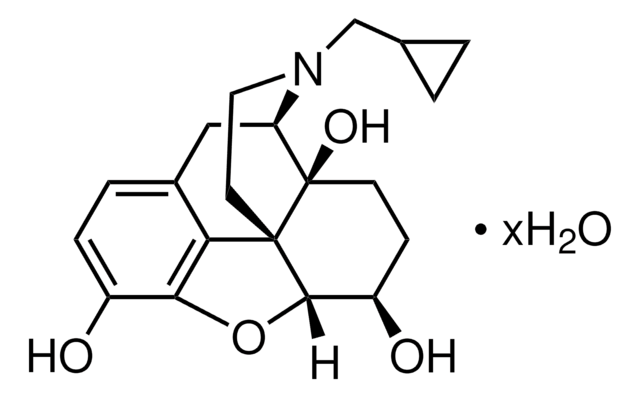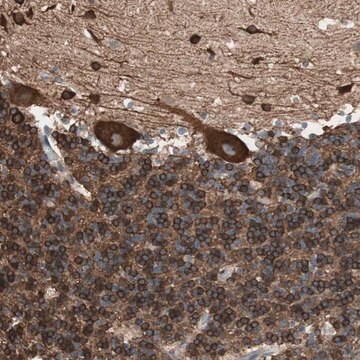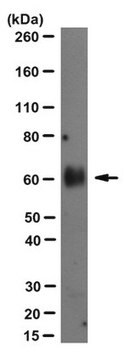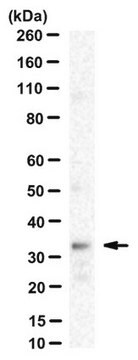A0349
Anti-l-Afadin antibody produced in rabbit

affinity isolated antibody, buffered aqueous solution
About This Item
Prodotti consigliati
Origine biologica
rabbit
Livello qualitativo
Coniugato
unconjugated
Forma dell’anticorpo
affinity isolated antibody
Tipo di anticorpo
primary antibodies
Clone
polyclonal
Stato
buffered aqueous solution
PM
antigen ~200 kDa
Reattività contro le specie
canine, mouse, rat, human
Confezionamento
antibody small pack of 25 μL
Convalida avanzata
independent
Learn more about Antibody Enhanced Validation
tecniche
immunohistochemistry (frozen sections): 1:1,000 using mouse liver sections.
indirect immunofluorescence: 1:500 using MDCK cells and cultured human HepG2 cells.
microarray: suitable
western blot: 1:2,000 using extract of rat brain
Condizioni di spedizione
dry ice
Temperatura di conservazione
−20°C
modifica post-traduzionali bersaglio
unmodified
Informazioni sul gene
human ... MLLT4(4301)
mouse ... Mllt4(17356)
rat ... Mllt4(26955)
Descrizione generale
Specificità
Immunogeno
Applicazioni
- western blotting
- immunofluorescence experiments
- immunocytochemistry
- immunohistochemistry
Azioni biochim/fisiol
Stato fisico
Esclusione di responsabilità
Non trovi il prodotto giusto?
Prova il nostro Motore di ricerca dei prodotti.
Codice della classe di stoccaggio
10 - Combustible liquids
Classe di pericolosità dell'acqua (WGK)
WGK 2
Punto d’infiammabilità (°F)
Not applicable
Punto d’infiammabilità (°C)
Not applicable
Scegli una delle versioni più recenti:
Possiedi già questo prodotto?
I documenti relativi ai prodotti acquistati recentemente sono disponibili nell’Archivio dei documenti.
Il team dei nostri ricercatori vanta grande esperienza in tutte le aree della ricerca quali Life Science, scienza dei materiali, sintesi chimica, cromatografia, discipline analitiche, ecc..
Contatta l'Assistenza Tecnica.